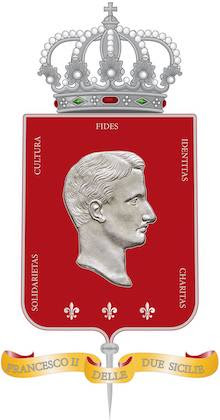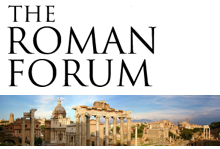 |
Illustration of the Bava Beccaris Massacre
for Le Petit Journal, 22 May 1898 |
Submitted by Cav. Charles Sant'Elia
After the unification of Italy through the late 1800s, Italy underwent a tumultuous period marked by profound political, social, and economic changes, from North to South. A well-known event was the so-called “Stomach Protest” of 7 May 1898 in Milan, which represents one of the most tragic and significant episodes of the era. The combination of difficult economic times, shortages, and social tensions led to a series of popular revolts, which culminated in the brutal repression orchestrated by General Fiorenzo Bava-Beccaris, who formerly served in the Piedmontese army in the Crimean War and the Risorgimento. On 7 May 1898, many Milanese crowds of protestors were fired upon by the army. The news quickly went around Europe and the world, reaching the small town of San Fili, in the province of Cosenza, Calabria. The local priest Don Giovanni Gentile, known as Chiacchiara, was moved to write verse in his native Calabrian dialect and publicly denounce a murderous and unjust government. This took true courage in the wake of the brutal repression inflicted on the rebels and fighters in Calabria and the South who were killed by thousands, including women and children, after being dismissed as “brigands” and criminals, often under summary field executions under the Legge Pica, and which continued in an intolerant and punishing posture beyond 1900. This economic downturn, coupled with repressive violence and incarceration, fueled the great emigration from Italy.
Over the centuries, San Fili has experienced its share of upheavals, particularly during the unification of Italy. The townspeople witnessed contracts awarded to politically connected firms, employing workers from outside the area to initially construct a railroad to San Fili. Later, the Ferrovie dello Stato decided to shut down the railroad, effectively removing San Fili from the railway network altogether. This occurred during periods when numerous unemployed young people were emigrating to the United States, Canada, and Argentina, and more recently, to Germany. San Fili remained proudly monarchist through the 1940s and, in fact, voted against the Republic in the referendum of 1946. Many oldtimers remarked over the years how one was better off under the Bourbons. The well-known Cardinal Fabrizio Ruffo, who led the Sanfedisti army, raised largely from Calabrian volunteers, against the revolutionary French invading army in 1799, was born in San Lucido, which borders San Fili, Rende, and Paola. Despite San Fili’s monarchist and Catholic ways, it even had some “republicans” and profiteers who attempted to fire upon Cardinal Ruffo during fighting on 6 March 1799 in the Crati Valley, striking his cross. The few criminals were arrested and subdued by the Sanfedisti. During the upheavals, groups from Falconara who had been at odds with the Sanfilesi took the occasion to invade San Fili and violent battles ensued, with the people of neighboring Bucita joining in to defend San Fili. San Fili had its share of carbonari sectarians as well, such as Santo Cesario, who was executed with the famous Bandiera brothers in the Rovito valley in 1844 when they attempted an invasion of the Two Sicilies with other foreign volunteers hoping to foment an insurrection. Sadly, these young idealists would be horrified to see the intentional destruction of half of Italy, which led to millions “voting with their feet”.
San Fili, a baronial town replete with seven churches, including one going back to 1304 and one in the area where Joachim of Fiore preached, was once a center of silk (five mills) and copper production as well as agriculture and yet after the unification of Italy, it found itself relegated to poverty and a loss of its centuries old commerce. Many townsmen died in the First and Second World Wars, and chain migration decimated the population. Nonetheless, this small town produced tough and resilient people and many notable and accomplished people, including Vincenzo Miceli (1858-1928) professor of constitutional law and his brother Alfonso Miceli (1855-1940) president of the Court of Appeals of Naples, and Baron Marcello Miceli, Gentleman of His Holiness Paul VI, John Paul I, and John Paul II, cavaliere di grazia e devozione SMOM.
The poem Pane! written by Don Giovanni Gentile alias Chiacchiara was published in a collection in 1904.
Pane!
Don Giovanni Gentile, alias Chiacchiara
Mentre l’uomini povari e dijuni
Vaû ppe’ le vie gridannu: «Pane! Pane!…»
Lu Guvernu ce manna battagliuni
E li tratta cchijù pieju de ‘nu cane.
Sparanu sti surdati a li truppuni
E faû ‘na chianca de le carne umane,
Ammazzanu le mamme e li guagliuni:
Ma “Pane!” torna si grida dumane.
Cari Ministri latri e sprigugnati,
Dintra la crozza cchi cosa ci aviti?
Ccu paddre nun si saziû l’affamati…
Vui stati franchi, mangiati e viviti?
Ma si pue ni vidimu disperati,
Vi facimu la peddra a quantu siti.
Bread!
Don Giovanni Gentile, alias Chiacchiara
While poor and starving men
Go through the streets shouting: «Bread! Bread!…»
The Government sends them battalions
And treats them worse than dogs.
These soldiers shoot at the crowds
And make a butchery of human flesh,
They kill mothers and children:
But “Bread!” they continue to shout tomorrow.
Dear shameless thieving Ministers,
What have you got in your noggins?
You don’t satisfy the hungry with bullets…
You’re all set, you eat and drink?
But if then we find ourselves desperate,
We’ll get you all as many as you are.





























